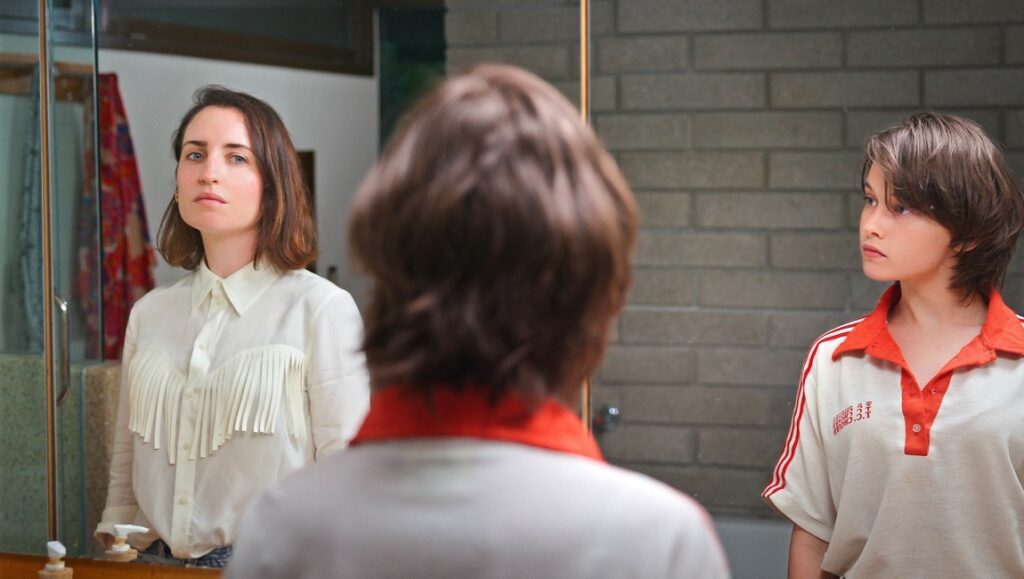How It Ends is the kind of pandemic-shot film that fails to capitalize on the novelty of its creation’s circumstance.
New indie comedy How It Ends prides itself on the fact that it was filmed during the pandemic-plagued summer of 2020, an act of desperation that basically begs audiences to forgive its slapdash execution. The husband-wife filmmaking duo of Daryl Wein and Zoe Lister-Jones, here serving as co-directors and co-writers, were obviously influenced by the world events around them, crafting a tale that details one woman’s journey of self-acceptance on humanity’s last day on Earth, soon to be obliterated by an apocalyptic meteor. The woman in question, Liza (Lister-Jones), hoofs her way across sunny Los Angeles, desperate to bring closure to a number of fractured relationships from her past. In tow is the metaphysical version of Liza’s younger self (Cailee Spaeny), who can now be seen by everyone as a result of some heightened emotional frequency caused by the upcoming cataclysmic event. Much like everything else in this film, there is absolutely no pay-off to this plot development, its implementation feeling like a half-assed eccentricity, at best.
The film’s episodic structure allows Liza and Liza Jr. to encounter numerous individuals on their trek across L.A., with Lister-Jones and Wein clearly calling in a lot of favors from friends to cameo for a series of one-off scenes that feel highly improvised and rarely amusing. It’s quite an achievement to gather the likes of Fred Armisen, Olivia Wilde, Bradley Whitford, Helen Hunt, Glenn Howerton, Lamorne Morris, Paul Scheer, Rob Huebel, Charlie Day, Colin Hanks, and — God help me — Pauly Shore, and give them exactly nothing of interest to do or say. It’s also quite obvious that, aside from Lister-Jones and Spaeny, the production had Covid protocols in place, with everyone on screen maintaining a bubble of at least six feet. While this is admirable — to the extent that adhering to life-saving protocols and communal responsibility has become praise-worthy rather than expected — it unfortunately results in exceedingly ugly shots that only serve to highlight the filmmakers’ (required) awkward blocking and improper use of screen space. But what’s most frustrating is that this hindrance actually could have been used in the film’s favor, a visual metaphor to reinforce the distance Liza has created between herself and others in order to shield herself from pain and heartache. This is, after all, the story of one woman finally learning to love herself — literally. Yet it becomes just another example of a production that showed little thought in conception and execution other than, “Wouldn’t it be cool if we got our friends together and made a movie?” As How It Ends makes painstakingly clear, the answer is a resounding no.
Originally published as part of Sundance Film Festival 2021 — Dispatch 2.
Published as part of SXSW Film Festival — Dispatch 1.


Comments are closed.